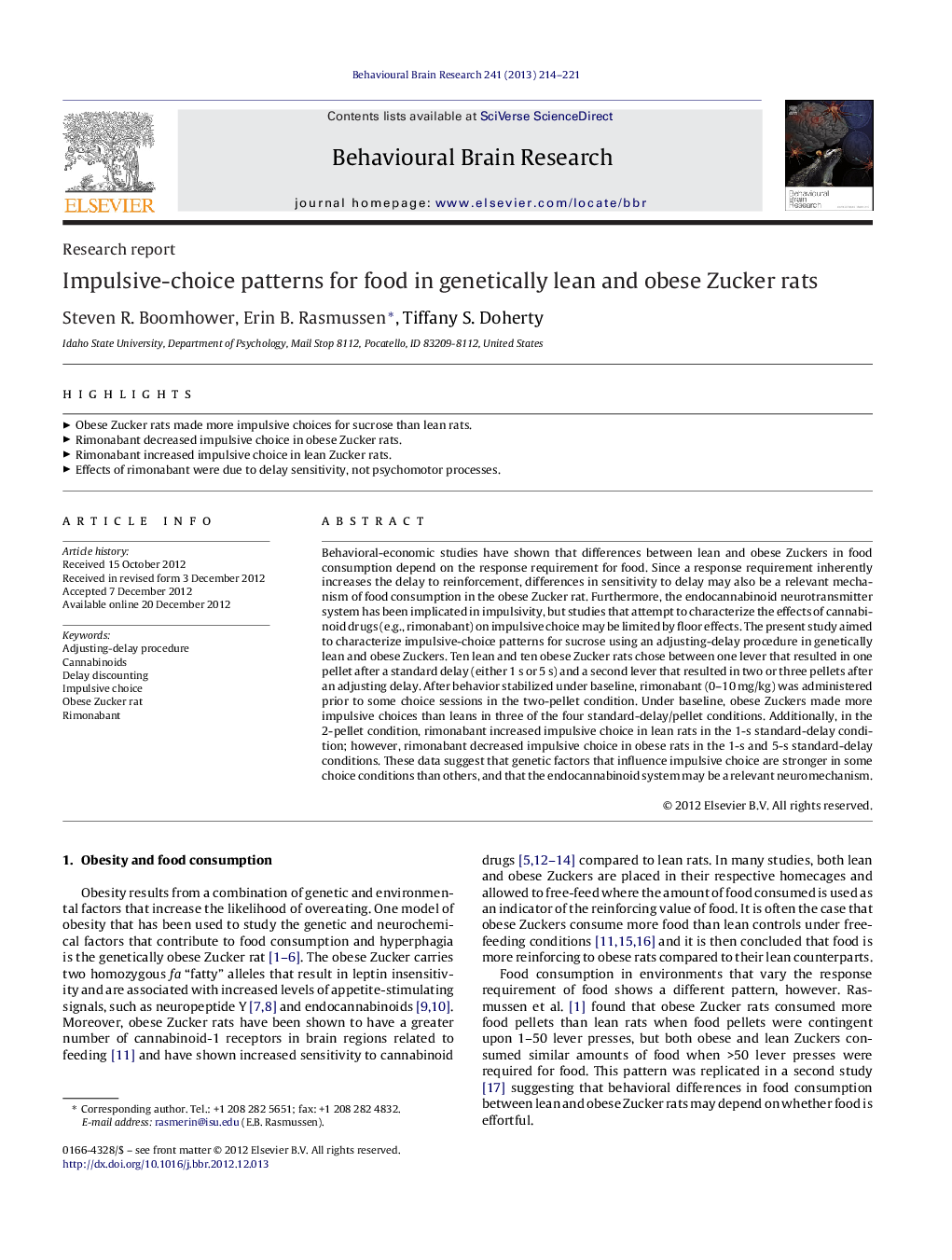| Article ID | Journal | Published Year | Pages | File Type |
|---|---|---|---|---|
| 6259218 | Behavioural Brain Research | 2013 | 8 Pages |
Behavioral-economic studies have shown that differences between lean and obese Zuckers in food consumption depend on the response requirement for food. Since a response requirement inherently increases the delay to reinforcement, differences in sensitivity to delay may also be a relevant mechanism of food consumption in the obese Zucker rat. Furthermore, the endocannabinoid neurotransmitter system has been implicated in impulsivity, but studies that attempt to characterize the effects of cannabinoid drugs (e.g., rimonabant) on impulsive choice may be limited by floor effects. The present study aimed to characterize impulsive-choice patterns for sucrose using an adjusting-delay procedure in genetically lean and obese Zuckers. Ten lean and ten obese Zucker rats chose between one lever that resulted in one pellet after a standard delay (either 1Â s or 5Â s) and a second lever that resulted in two or three pellets after an adjusting delay. After behavior stabilized under baseline, rimonabant (0-10Â mg/kg) was administered prior to some choice sessions in the two-pellet condition. Under baseline, obese Zuckers made more impulsive choices than leans in three of the four standard-delay/pellet conditions. Additionally, in the 2-pellet condition, rimonabant increased impulsive choice in lean rats in the 1-s standard-delay condition; however, rimonabant decreased impulsive choice in obese rats in the 1-s and 5-s standard-delay conditions. These data suggest that genetic factors that influence impulsive choice are stronger in some choice conditions than others, and that the endocannabinoid system may be a relevant neuromechanism.
⺠Obese Zucker rats made more impulsive choices for sucrose than lean rats. ⺠Rimonabant decreased impulsive choice in obese Zucker rats. ⺠Rimonabant increased impulsive choice in lean Zucker rats. ⺠Effects of rimonabant were due to delay sensitivity, not psychomotor processes.
